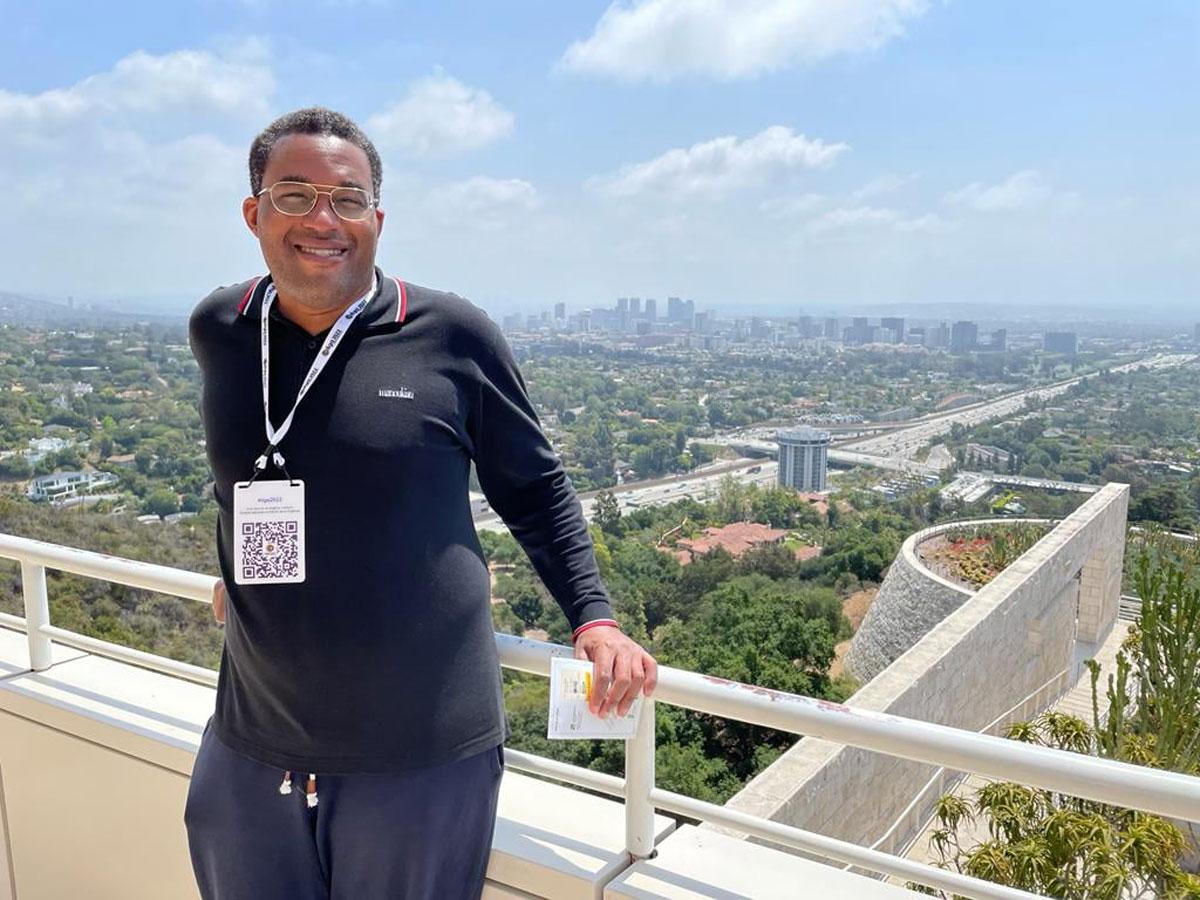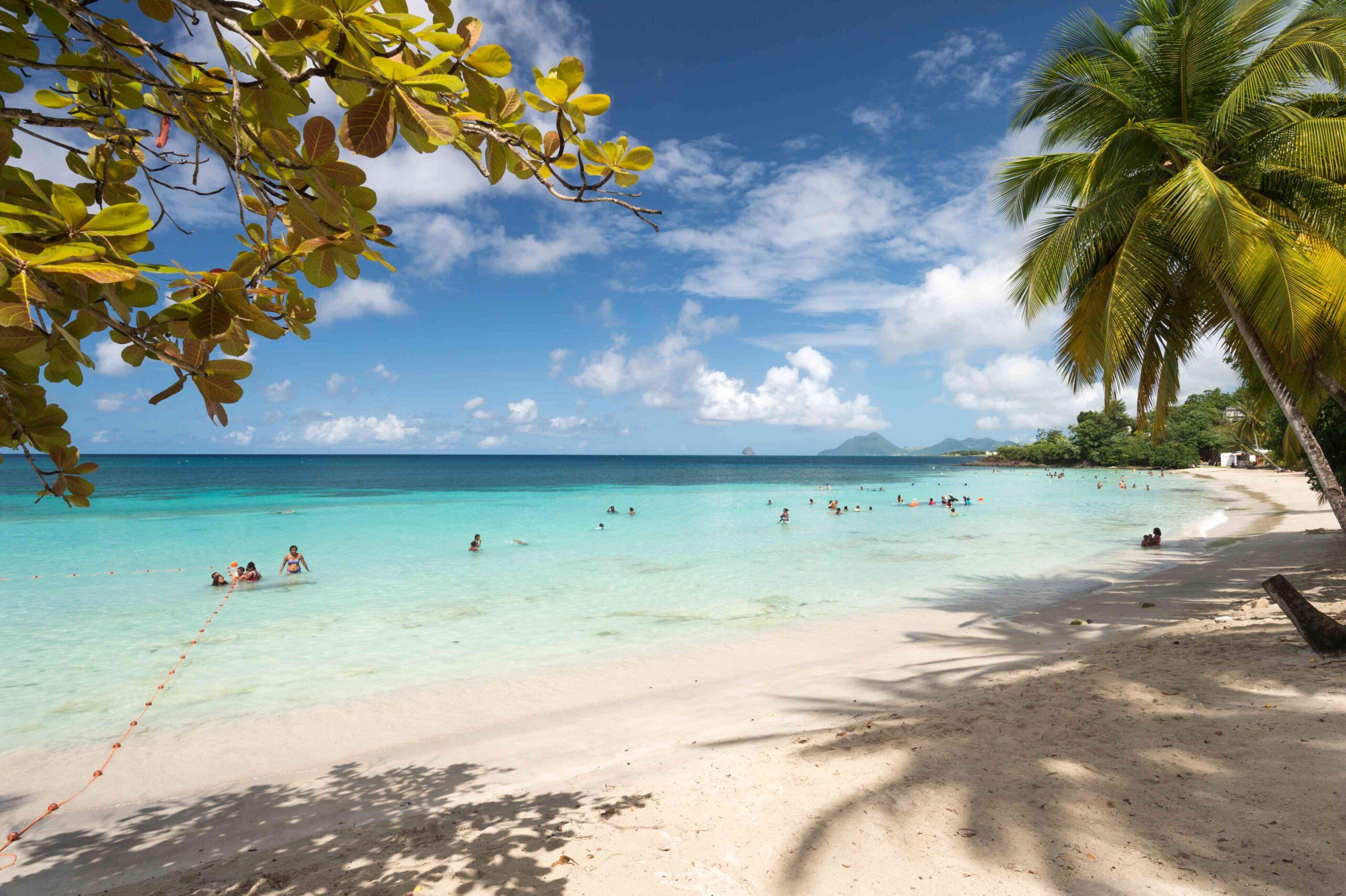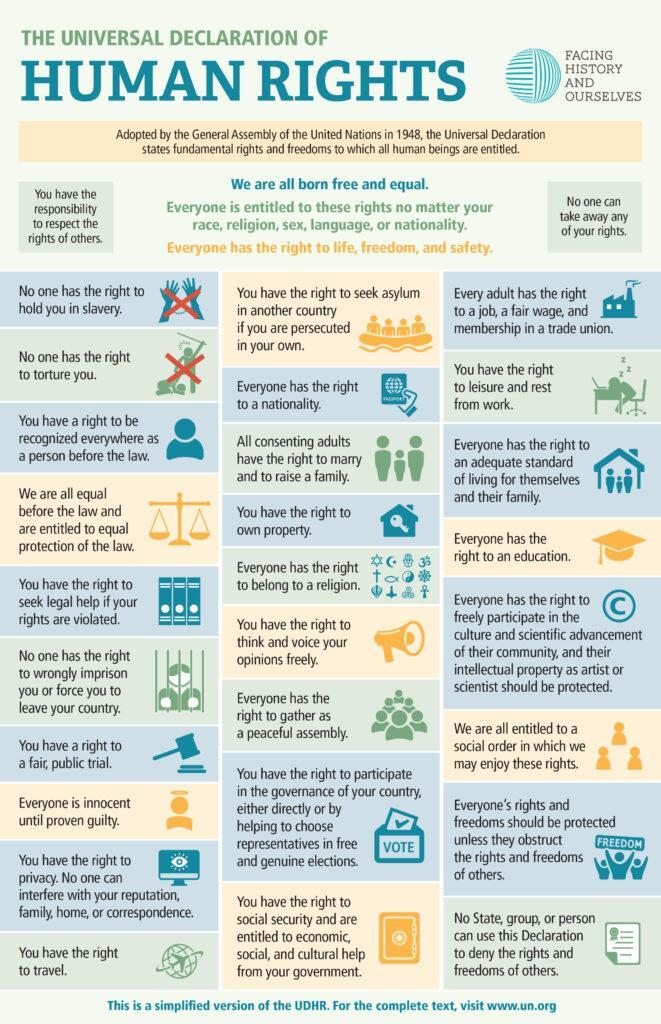Activist reporter tells why he promotes LGBTI rights in the French Caribbean
LGBTQ rights activist and journalist in Cameroon.
More than 12 million people live in the Francophone Caribbean, from the independent nation of Haiti to the French territories of Guadeloupe, Martinique, St. Martin, St. Barthélemy, and French Guiana. LGBTI people across the region have unique struggles that Erasing 76 Crimes reporter Moïse MANOËL-FLORISSE, an Afro-Caribbean native of Guadaloupe, has involved himself in for many years.
Haitian journalist Medya Moun interviewed him about the struggles of the LGBTI community in the Francophone Caribbean.

You have been an activist for LGBTI rights for some time. Can you share with us your motivations?
For me, LGBTI activism is a collective extension of the individual struggle I had to go through myself to overcome injustices related to my sexual orientation.
As a black, rural and bisexual person from Guadeloupe, I quickly understood that homophobia was a denial of freedom and that it would probably be even more difficult for me than others to emancipate myself.
Then, I was so drunk with social pressure when I was young that I understood early on that I had to fight hard to change policies, laws, mentalities and our Caribbean societies.
So the foundation of my activism is the huge frustration of a kid who at 15 years old realized that he couldn’t live in the way he was even though he was not hurting anyone.
However, activism is not a solitary endeavor and therefore I decided to embrace a community approach by getting closer to people like me, where they are. That is, in the big cities.
In the rural areas where I come from, the relative poverty, the isolation, the lack of public transportation, the remoteness and the absence of social mixing hinder the emergence of a sustainable solidarity among LGBTI people. Instead, ordinary homophobia takes over: insults, spitting cigarette smoke in the face, lack of friends, lack of family support, pack harassment, street harassment, etc…
It can never be said enough: It takes courage to live and bounce back to life.
The only way out of suicidal thoughts in this context is resistance. Deprived of television by my relatives, at a time when smartphones did not yet exist, it was thanks to listening to the radio and reading newspapers at the Caribbean Media Library, located in front of my high school, in Basse-Terre, that I was able to keep up with the news of the rights of LGBTI people in developed countries.
Today, I think that I got my love for the written press and the media from that period of my life. But without news about the progress of LGBTI rights struggles internationally I think I would have died of despair.
Maybe I would have thrown myself under the wheels of a car in St. Claude, or maybe I would have thrown myself off a cliff in Vieux-Fort, only to end up crushed in a ravine by the sea, after a leap in the air, so I could see what’s in the afterlife.

What do you think are the real issues facing LGBTI people?
In the Caribbean and elsewhere, there are real issues related to the mental burden of being a minority population in societies and spaces with variable tolerance.
For example, you can go to a beach in Martinique and enjoy a paradisiacal or even idyllic setting for an afternoon, and then return home to a room in a CROUS university residence [government-subsidized student housing], with the nerves in your stomach when faced with neighbors who think you have the worst intentions.
It is very difficult to be able to be who we are and to be perceived at the same time as a threat or even a peril to the virility of others. Still too often, people imagine that we have dark, perfidious, Machiavellian and diabolical designs to undermine the heterosexuality of our peers, step by step, stone by stone, in order to “convert them to homosexuality.”
Like what is happening in Africa, there are many anti-Masonic and anti-Western conspiracy theories behind this..
In this context, it is as if our love orientation erases all our other interests — Kompa fan, Gilbert de Chambertrand reader, awara broth gourmet. It becomes difficult to live serenely, especially since the LGBTI community has few community leisure resources such as bars and safe and so-called “gay-friendly” restaurants where we can chat about anything and everything in peace.
I also think that beyond conspiracy theories or neo-Pentecostal theories, popular beliefs impregnated with Christian fundamentalism also play an important role in how we are perceived by the rest of the population, especially in Haiti but also in the Lesser Antilles and French Guiana.
LGBTI people are thus seen by too many as lustful and insatiable beings, needing to lay down their malaise in the satiation of sins and misdeeds, of which the “curses” that plague the region are the consequences: COVID-19, hurricanes, earthquakes, tidal waves, sargassum strandings, Zika epidemic, HIV or even cholera.
The result is a real difficulty in finding one’s place in island societies where social capital is at least as important as economic capital. We have difficulty finding professional stability in the face of repeated harassment, difficulty in finding housing in a safe and peaceful city. We’re shunned by a sibling and have to endure gossip that turns into slander, etc…
This is why those who have the means to do so will leave to live their lives under other skies in order to regain their psychological and mental balance.
What are the solutions you propose to all this?
The solutions must necessarily be collective and long-term, concerning advocacy and the sensitization of opinion leaders: pastors, voodoo priestesses, musicians, artists, politicians, businessmen and women from the tourism and cultural sector.
However, in an emergency, we must be able to act in favor of threatened, broken and wounded lives, by helping to heal the wounds of our peers, victims of discrimination and sometimes of extortion.
However, solidarity implies time and therefore financial means to be able to help and assist the victims: setting up shelters, legal fees, visits to the doctor, payment of psychologists and family mediators, payment of travel expenses.
In parallel, artistic, recreational and festive activities must be set up to encourage the awakening and development of vulnerable and marginalized communities, in order to strengthen the links between peers.
Secondly, we must work on the social reintegration of excluded people through training, work and especially access to micro-credit when it is available. This of course implies long-term administrative support.
Finally, the question of housing remains central: the shelter must remain the first place where one feels safe. And it must remain a place that provides well-being. The question of housing is inseparable from the living conditions and professional qualifications that allow safe access to a home.
Is there any progress today regarding the situation of LGBTI people?
Certainly yes. Since 2021, MAP [medically assisted procreation] for all women is theoretically accessible in Guadeloupe, Martinique, as well as in French Guiana and Saint-Martin. Also, conversion therapies have been officially outlawed in the French overseas territories since January 2022.
In Haiti, since mid-2020, a decree allows transgender people to more easily change their status on administrative identity documents.
Whatever the territory, we know that the road from law to reality is long and that there are still many obstacles to overcome.

What is the basis for demonstrating the need to guarantee the rights of LGBTI people ?
We must be able to rely on the principle of non-discrimination and equal treatment of all persons. See the UN Charter of Human Rights of 1948.
Is your position as an activist for the rights of LGBTI people favorable to you? Can you give examples?
I am very poor and I do not derive any economic or social privilege from being an LGBTI rights activist. However, I was recently able to go to the ILGA World Conference in Long Beach, California, in early May because I have a French passport and it is easier for me to travel than people from other countries.
Apart from that, pro-LGBTI activism is quite uncomfortable for me and has brought me death threats, due to my exposure and visibility of these issues during a documentary entitled “We Homos of French Guiana” in 2019.
Anyway, the threats pre-existed my media exposure and it was the fact of being assaulted by my biological brother in 2016 that made me return to activism for the past six years.
Socially in Guyana, I was an Afro-Caribbean intersectional, anti-racist, anti-homophobia, and anti-neocolonialist activist and this earned me many verbal assaults, in a territory where white LGBTI activists actively fight intersectionality, with the exception of gender-related intersectionality, towards lesbian people.
In addition, I have had to deal with Islamophobic remarks or attempts to silence a narrative that starts from my historical and social experience as a Black, Afro-Caribbean man.
Even within LGBTI communities, racism, classism, “pro-colonialism” or Islamophobia can be found among homosexuals. Thus, finding myself in front of other LGBTI people is not necessarily a sign of a peaceful haven or of a quietness that is conducive to my ataraxia [calmness].
Today, living in Paris thousands of miles away from the banks of French Guiana’s Maroni River, I find the same thing happening at parties in the LGBTI community. Women are not even greeted by the white gays who pass by. They are invisibilized, ignored. They are not even spoken to, or barely. Yet these are supposedly progressive circles, not backward religious men in cassocks or djellabas. For my part, in these places, I try to be present and polite, then I don’t stay and walk away on the balls of my feet.
I work with LGBTI communities in the field of human rights, I am a bisexual person myself, but I don’t go to LGBTI social places at all, by choice: avoidance of drama, fear of grossophobia [fatphobia], refusal of body worship and sexual fetishization. Besides, for all these reasons, I don’t have a profile on Grindr, I’m single and I refuse to be a heartthrob, so as not to be disappointed anymore, I think. So again, I’m single, but I feel good that way.
However, even though I take every precaution to avoid sexual tension in my dealings with the LGBTI communities, I have to deplore the fact that the work we do is still being smeared, maligned and denigrated by the very people who are supposed to support us, due to rivalries of associative influence. For example, recently, an employee of a francophone organization had the indecency to claim that the articles I write about Senegal contribute to the reinforcement of homophobia and death threats against LGBTI activists living there, while obviously, homophobic populism and political exploitation of homophobia did not wait for the advent of the blog I work for, in order to be able to express itself in the open, in the street, since 2008.
Finally, as soon as we work a lot and in an efficient way, we have to expect to face resistance, from toxic, radioactive, ego-hungry people who don’t want to see us advance and prefer to control us by blocking our way. This is unfortunate, but it is not unique to the LGBTI movement.
Sometimes you are also used and there is a lot of manipulation in the LGBTI activist community. But in order to be able to stand the test of time, you have to know how to turn your back on some people and be ready to work hard for the rights and advancement of the community. Also, you must be able to remain vigilant in the face of attempts at exploitation and economic abuse, with association leaders who refuse to reimburse you for advances of expenses, when your salary is already well below the absolute poverty line.
In short, you have to ask yourself why you are in this field and tell yourself that you are there to fight for a political cause. People who have other social or societal expectations should expect to be quickly disappointed. In any case, this is my experience.
In your opinion, what should be the role of political, religious, and educational actors and of each citizen in particular with regard to the respect of human rights ?
As we say in Guadeloupe, “chak moun sé moun.” [Every person is human.] We must always be able to attach ourselves to the respect due to human dignity and maintain a posture of dialogue with others, even if we do not share the same political convictions. It is not complicated, it is living together. It just implies listening to minorities and renouncing the temptation of hegemonic domination. Democracy is not the right of the majority. One person’s freedom ends where another’s begins. These are repetitions, but we must continue to repeat them in order to educate people.
We must fight for the right to live safely and lead convergences with other social movements of struggle and progress in our Caribbean territories. Black LGBTQI+ lives do matter.




